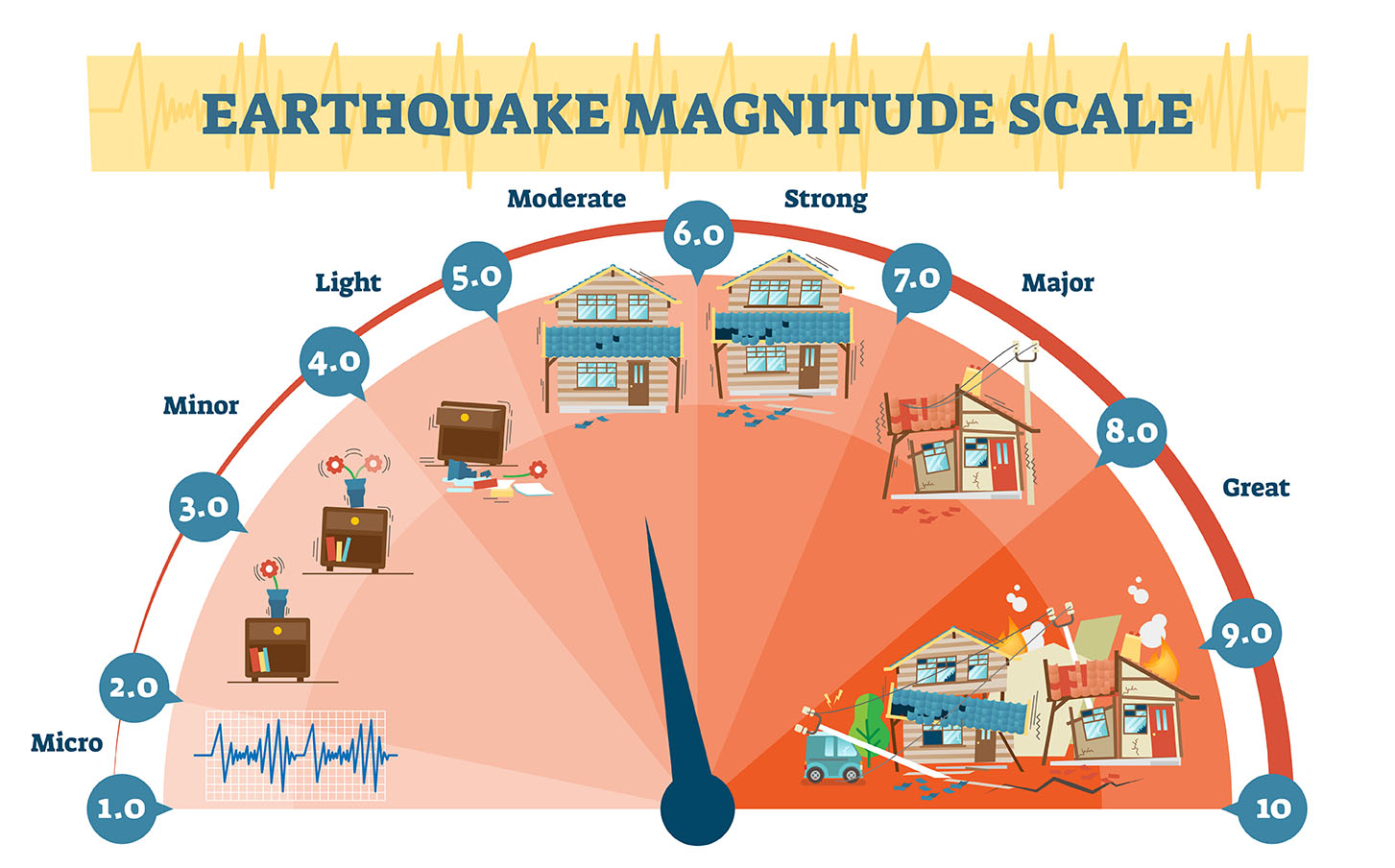

In science, magnitude is a measure of the size or amount of something. It is often used to compare different things, such as the size of earthquakes or the brightness of stars.
Magnitude is usually measured on a logarithmic scale, which means that each increase in magnitude corresponds to a tenfold increase in size or amount. For example, an earthquake with a magnitude of 7 is ten times larger than an earthquake with a magnitude of 6, and a star with an apparent magnitude of 1 is ten times brighter than a star with an apparent magnitude of 2.
The magnitude scale is also used to measure other things, such as the strength of a hurricane or the size of a black hole.
The magnitude of the earthquake was 7.0 on the Richter scale.

Noun: The size or extent of something. For example, you could say "the magnitude of the earthquake" or "the magnitude of the problem".
Adjective: Describing something that is large or significant. For example, you could say "a magnitude event" or "a magnitude problem".
The word "magnitude" comes from the Latin word "magnitūdo", which means "greatness".
The word "magnitude" was first used in English in the 14th century. It was originally used to describe the size or extent of something, but it soon came to be used in a more figurative sense to describe anything that was large or significant.
What does magnitude mean?
Question:
Explain the concept of magnitude in physics and provide examples of how it is used to describe different physical quantities.
Answer:
Magnitude in physics refers to the size or quantity of a physical property without considering its direction. It is often used to measure the strength or intensity of various phenomena. Magnitude is a scalar quantity, which means it has only magnitude and no specific direction associated with it.
In various contexts, magnitude is used to describe different physical quantities. For instance, in the realm of force, magnitude is applied to measure the strength of a force exerted on an object. In the case of velocity, magnitude indicates the speed of an object in a given direction. Similarly, in the context of vectors, magnitude defines the length of the vector without concern for its orientation. For example, in the case of displacement, magnitude quantifies the total distance travelled regardless of the path taken.
The concept of magnitude also finds application in describing quantities like electric fields, gravitational forces, and sound waves' amplitude. In each case, magnitude provides a numerical value to characterise the strength or extent of the phenomenon under consideration.
Address
Developing Experts Limited
Exchange Street Buildings
35-37 Exchange Street
Norwich
NR2 1DP
UK
Phone
01603 273515
Email
hello@developingexperts.com
Copyright 2025 Developing Experts, All rights reserved.